#tropes in bl
Text
Uea, on behalf of ukes everywhere, thank you for this:

which is the only correct response to this:

(Well, the actual correct response is that rain won't make anyone sick unless there are extreme weather conditions or a compromised immune system at play, but that's a bridge too far for any of our BL boys.)
12 notes
·
View notes
Text



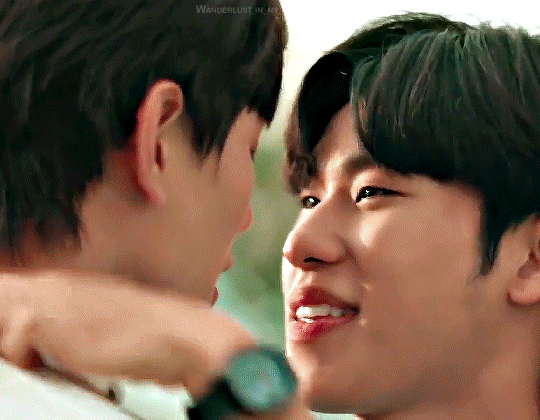






Light as a feather
Kiseki: Dear To Me
Love In The Air
Wedding Plan
Love In Translation
Bake Me Please
Last Twilight
Hidden Agenda
I Feel You Linger In The Air
Playboyy
Kiseki: Dear To Me
My favorite lift-ups (Part 1/?) as part of my favorite bl-tropes collection, in no particular order.
#kiseki: dear to me#love in the air#lita#wedding plan#love in translation#bake me please the series#last twilight#hidden agenda#i feel you linger in the air#playboyy#tvtropesedit#bl drama#bl series#myedit#multi bl#multibl.edit#bl tropes#liftyouuptomyheart
893 notes
·
View notes
Text

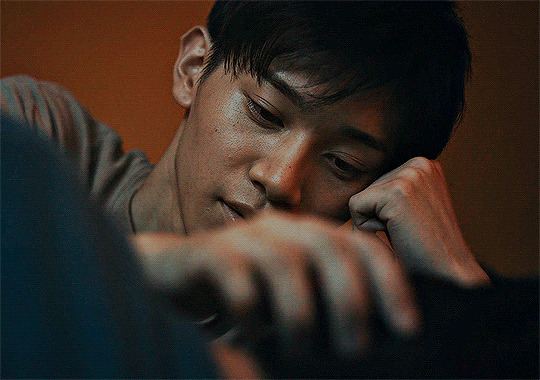
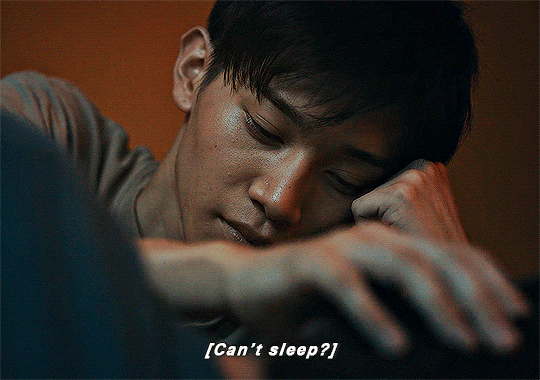




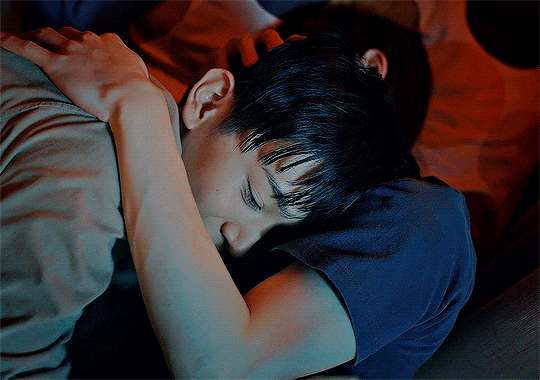


There's nowhere to escape to, and I already conveyed my feelings. It's unfair.
彼のいる生活 (2024)
#living with him#彼のいる生活#jdrama#jdramaedit#Kare no Iru Seikatsu#childood friends to lovers trope my most belovedddd#marigif#haven't giffed in ages so sorry for the coloring </3#japanese bl
453 notes
·
View notes
Text





You still have a fever. It's better to rest for now. I'll bring a cloth to wipe you down.
#monster next door#monster next door the series#big thanakorn#monsternextdooredit#thai bl#thai drama#bl drama#bl series#my edits.#lextag#big speedrunning every bl trope in this ep to make up for years of thirdwheeling#and i really appreciate it#i don't know how we survived for years without this
229 notes
·
View notes
Text
Shout out to Unknown for demonstrating that serious injuries do have long-term affects on your body and your mind.
There isn’t an episode that goes by where we aren’t reminded of everything Qian has gone through to get to where he is. And it’s not just from flashbacks. It’s in the scars that remain on his body. The nightmares that haunt his sleep. In his interactions with women. His fierce protectiveness of his family. Qian’s triggers and responses to them make sense and don’t just appear out of the blue for dramatic effect.
So much of the emotional and physical trauma that Qian has experienced continues to impact his daily life in a way that makes him feel less like a character with a tragic backstory and more like an actual person with lived experience.
#usually characters in dramas get insta-healed from injuries that almost kill them#but not Qian#and we are also blessed with the magic healing bl sponge bath#best of both worlds one could say#qian you deserve to be loved and protected#and yuan is right there#the acting is superb#unknown the series#the like brothers to lovers trope is hard for me to enjoy#but so far I’m really liking this show!#qian x yuan#taiwanese bl#bl series#itsybitsybabbles
436 notes
·
View notes
Text
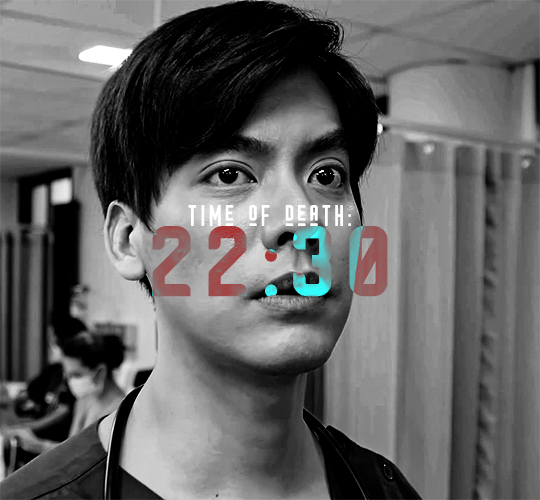
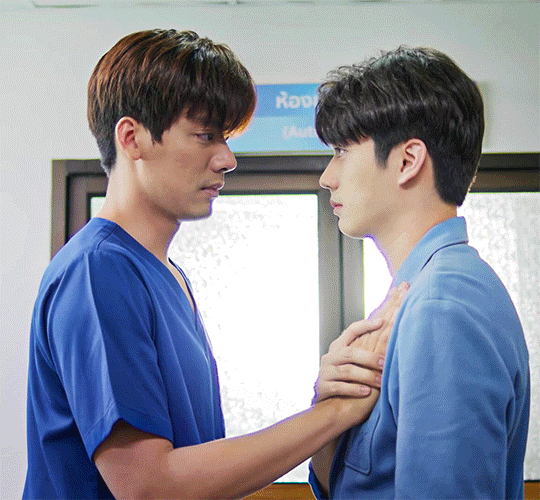

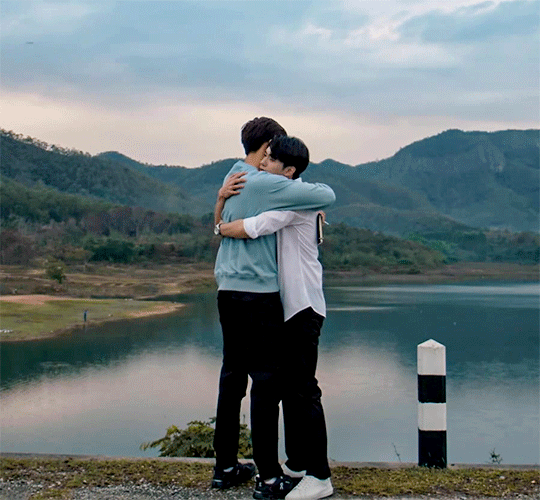
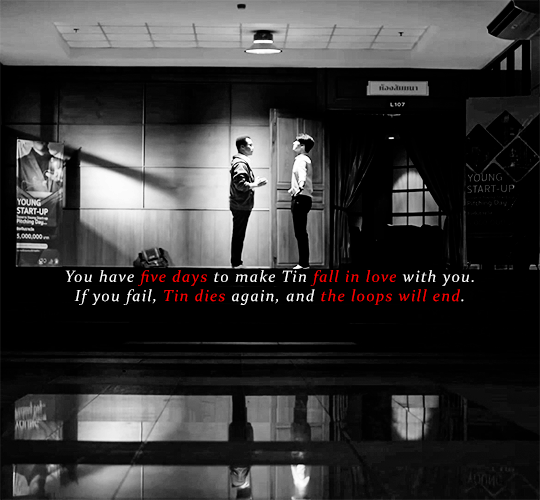
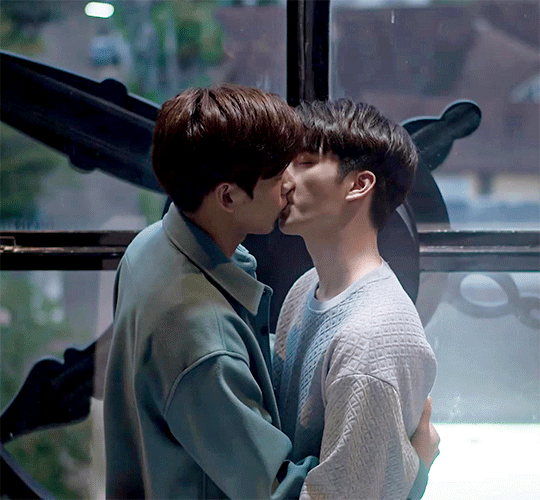
I will. I will bring you back. And we will see each other again. I promise.
@asiandramanet april bingo: tropes & lgbtq+ rep
#triage the series#triage#tintol#thaidrama#thdrama#bl drama#asiandramasource#asiandramanet#userdramas#lextag#*gifs#*bingos#idk how to encapsulate the entire timeloop trope but i live breathe and die for it love me a tragic timeloop!!!!!
398 notes
·
View notes
Text








popcorn love is in the air 💞
#this love doesn't have long beans#love no long beans#love no long beans ep6#methasjj#methas x jj#garfieldbenz#change 2561#thai bl#bl drama#they fulfill one my favorite tropes which is loser meets loser#they have a cat-dog dynamic going on and i love it
202 notes
·
View notes
Text

Aof when I catch you Aof WHEN I CATCH YOU !
#bl tropes#thai bl#last twilight the series#last twilight#aof noppharnach#jimmysea#mhokday#mhorkday#we’re on episode 6 Day#It’s an Aof show Day#bad buddy
491 notes
·
View notes
Text
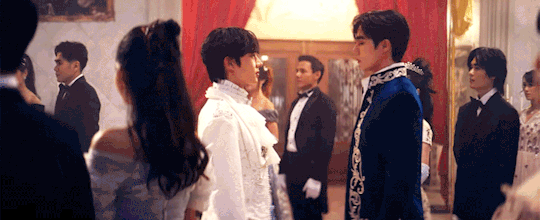
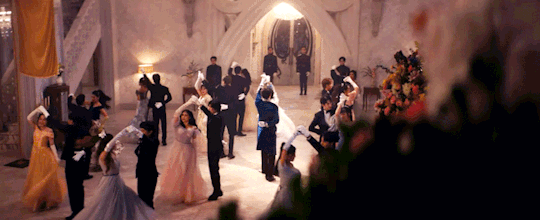
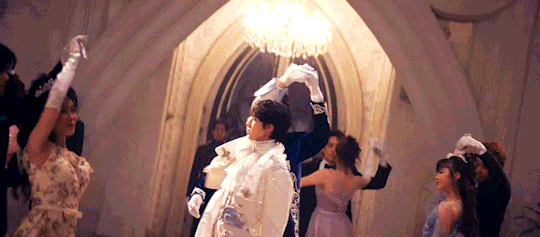
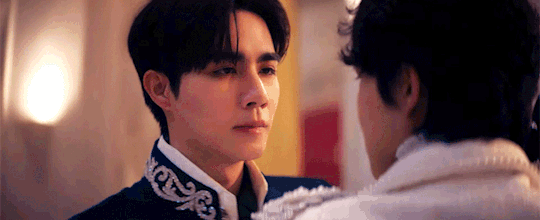

The waltz! The beautiful, formal, waltz!
#the next prince#the next prince the series#thai bl#bl tropes#thai bl series#bl series#thai drama#thai bl drama#asian lgbtq dramas#asianlgbtqdramas#thaibl#thai series#bl boys#bl drama#bl waltzing#my favorite trope
268 notes
·
View notes
Text


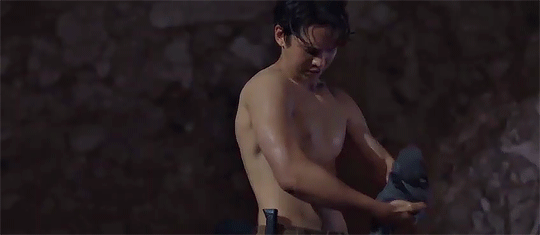


the one where we're all kram
#two worlds#two worlds the series#twoworldsedit#taikram#maxnat#max kornthas#nat natasitt#bl drama#bl series#thai bl#thai drama#thaidramaedit#boyslovesource#dailyasiandramas#asianlgbtqdramas#asiandramasource#asiandramaedit#asiandramanet#glsls love a well executed trope thank you team!#my gifs
209 notes
·
View notes
Text
a) well, that answers that question.
b) maybe I shouldn’t have watched this right after Our Dating Sim. Individual Circumstances suffers by comparison with an inferior take on basically the same back story. It’s not terrible, just not as clever and nuanced. And while in Our Dating Sim Gi Tae ended up looking better as a result, I suspect Yeon Wu will end up looking worse. But I still have an episode and a half to go, so I won’t count him out yet!
(Pissy, depressed, and oh-so-scared Wu Jae is my best beloved and can do no wrong. He will always come out looking good.)
#i will say this for yeon wu—his enjoyment of the bean sprout soup made me crave spicy soup so now i’m eating some#though wu jae made it so perhaps he gets the credit for this one too#individual circumstances#our dating sim#tropes in bl#queerness in bl#gillianthecat liveblogs bl#indcir ep 7
26 notes
·
View notes
Text





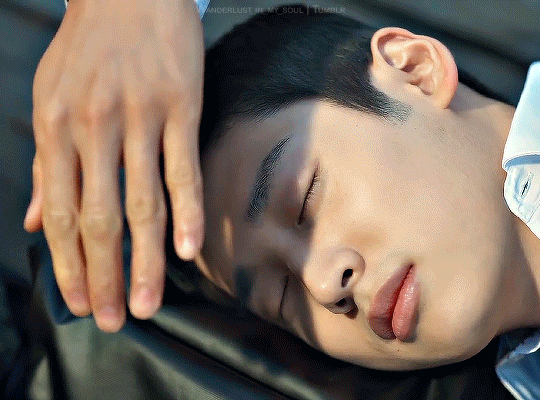




Random loving acts of service (Part 3/?)
A Breeze Of Love
Hidden Agenda
Unknown
Egoist
Tokyo in April is...
Love Class 2
Our Skyy 2
Cooking Crush
My Personal Weatherman
To My Star
Favorite acts-of-service as part of my favorite bl-tropes-collection in no particular order.
#bl tropes#multi bl#multibl.edit#trandomlovingactsofservice#bl series#bl drama#asianlgbtqdrama#myedit#a breeze of love#hidden agenda#unknown the series#egoist#tokyo in april is...#love class 2#our skyy 2#cooking crush#my personal weatherman#to my star
460 notes
·
View notes
Text
"Top", "Bottom" Discussion in Unknown ep. 12
The Office Gossip Scene
[Edited on 10th May; changes under clarification headings]
Now that the Unknown has resurrected the conversation about gong shou, let’s talk about it. The what and the why, so to say.
Thank you @1serotonindeficientgirl (whose post inspired mine).
I welcome critiques and corrections. So, please feel free to do so.
Scenes and subtitles
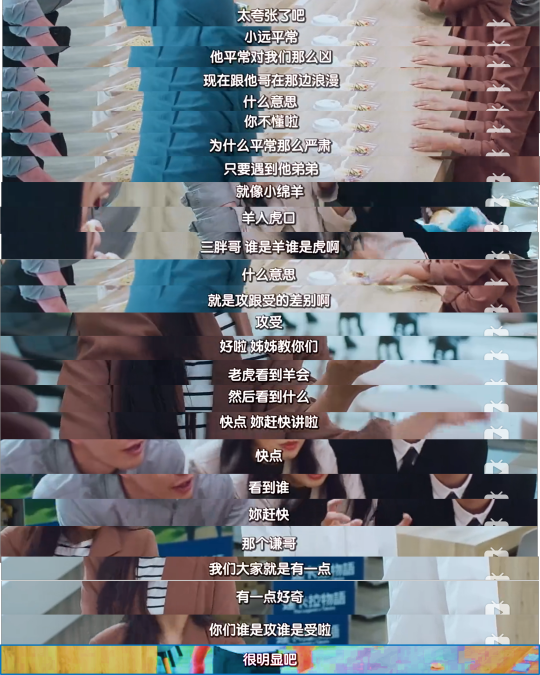
The discussion in the episode starts with Wei Qian’s staff gossiping about his relationship with Wei ZhiYuan. One of the staff members comments that Wei Qian is like a little lamb (小绵羊) when it comes to his little brother:
只要遇到他弟弟
就像小绵羊
Someone replies with the following idiom:
羊入虎口
(Literally: “a sheep enters a tiger's mouth”)
It means to enter a dangerous situation where one will certainly suffer [Source: Wiktionary].
The female employee (who witnessed their kiss) asks San Pang:
三胖哥谁是羊谁是虎啊 - Who is the lamb (羊; sheep) and who is the tiger (虎)?
This has some employees confused and they ask for an explanation. They receive the following reply:
就是攻跟受的差别啊 – [it means] between them, who is gong and who is shou?
One of the staff members repeats the unfamiliar terms:
攻受 – gong shou
and the fu-nu (腐女; fujoshi) offers an explanation:
好啦姊姊教你们 – let this elder sis explain
老虎看到羊会 – the tiger upon seeing the lamb…
Before she can complete her explanation, Wei Qian moves into the scene accompanied by the growl of a big cat. The gossipers disband.
In the end our fu-nu expresses their support for Wei Qian’s relationship with Wei ZhiYuan. Before she runs off, she throws him the question:
你们谁是攻谁是受啦 – between the two of you, who is gong and who is shou?
In the next shot Wei Qian is alone. He flexes his muscles and comments:
很明显吧 - It's obvious, isn't it?
[END OF SCENE]
Everyone at that office seems pretty close. The staff calls Wei “Qian ge” 谦哥 (first name + brother) and not as “Mr. Wei” (as the English subtitles suggests). Looks like Lao Xiong (emphasis on Lao = old) is the only one who clearly disapproves of such gossipmongering.
Notice how the terms gong and shou were translated directly into top and bottom in English subtitles. While that’s technically correct, there’s some nuance missing.
While there are tongzhi (同志;queer) people who use the terms gong and shou, these are not the most popular terms for top and bottom in the tongzhi community. This series specifically uses the terms gong (攻) and shou (受). Why? We’ll get to that in a minute.
In a BL, being shou means that character is the bottom in that particular ship. That character could be top, bottom, versatile or neither in another ship. A character is a bottom (as we use the term in English) only when that character is an absolute shou (sou uke in Japanese). An absolute shou is invariably shou. No matter which ship he becomes part of and no matter who he is paired with, he will be the shou. Similar difference exists between the terms “top” and “gong”.
English subtitles use ‘top’ and ‘bottom’ from the get-go. There is no need to explain what those terms mean. But that’s not the case with gong shou – only 腐 (fu) people (BL fans) really knows what those terms really mean and thus warrants explanation.
Clarification
[Edited. Thank you @abstractelysium and @wen-kexing-apologist for contributing to the conversation.]
As noted in the convo, Wei Qian is pretty ferocious in the office and is only gentle when it comes to Wei ZhiYuan. So, it is normal that gossiping irrespective of topic would end as soon as he arrives. Also, I think Wei Qian didn’t get what gong shou means other than allusion to tiger and lamb. The original language dialogues don’t make it clear that gong and shou means top and bottom (in a ship). [The English subs gives off that impression since gong and shou were simply translated.] Moreover, those terms are danmei literacies that has entered dictionaries but not necessarily public knowledge.
It is like an insider joke for fu-people made possible by Wei Qian’s ignorance. That wouldn’t have worked on Wei ZhiYuan who read danmei while growing up. That wouldn’t have worked if the fu nu (fujoshi) stuck around to explain what that means.
Usually in such conversations in BL, fu-people are shown to be mistaken: they either mess up the ship/dynamic (Love By Chance 1) or the character(s) in the ship deliberately trick them (Counter Attack). It is almost always played out with seme/gong’s approval in BL - not sure if that dynamic between fu-people & seme aka gong character ever appeared in any live-action dynamic. The trigger of this scene is Wei ZhiYuan’s deliberate choice of actions: PDA, kiss in the office right in front of a staff member.
BL literacies
BL is a media genre in itself with different sub-genres, genre conventions and classic works. It sure has a lot of overlap with other genres:
Romance as well as GL – they coevolved. They share mothers and other ancestors.
Queer – Is it really a genre? Even if one were to ignore queer as method in academia, it is still so complex.
Let me quote Taiwanese tongzhi author Chiang-Sheng Kuo:
… what exactly is queer literature? Is it queer literature if queer people like to read it, or is it only queer literature if there are queer characters in the books? Or is it an appendage of the queer movement? If a queer author writes a book without queer characters, does that represent a certain aspect of queer culture?
(You can find the whole interview here.)
Just as danmei (耽美; Chinese BL) has its roots in Japanese BL, so is gong (攻) and shou (受) from seme (攻め) uke (受け).
gong shou aka seme uke dynamics
Mother of BL, Mori Mari, didn’t come up with it, nor did her father Mori Ogai. Both she and her father, among the other dozen tanbi (耽美; same writing as danmei but different readings cause different languages, and different meanings cause different cultures) authors inherited it from authors before them who wrote on contemporaneous and historic Japanese male androphilia.
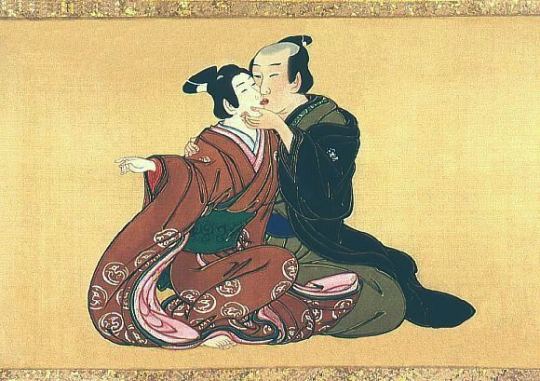
Spring Pastimes. Miyagawa Isshō, c. 1750 | seme uke dynamics in nanshoku pre-dates BL by hundreds of years.
While there is no dearth of riba (versatile) characters in BL, seme uke dynamics is:
a genre specialty. There are similar words in use in GL as well.
an enduring connection to the past of where BL was born.
remnants of a particular model of queerness; an alternative to LGBTQIA+ form of queerness.
What’s there in the scene
There is something hidden in the euphemistic explanation. On the face of it tiger devouring a lamb would be allusion to tiger gong devouring (topping) lamb shou.
But then tiger is a big cat and lamb is a herbivore. Neko (ネコ), the Japanese queer term for “bottom” means cat (etymology is obscure with this one). The term herbivore (草食) when used to describe a man means that man is masculine in a non-hegemonic way. In the series, Wei Qian embodies the hegemonic masculinity while Wei ZhiYuan is a quintessential grass-eater.
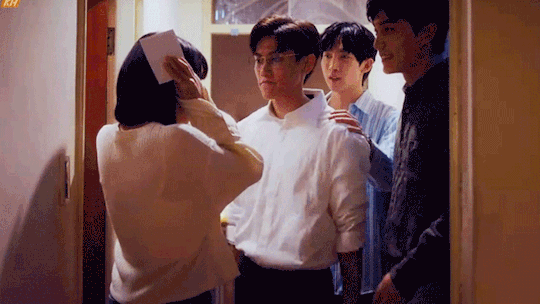
So, the description of lamb being devoured by a tiger would not be associated as simply as with the terms gong and shou especially when it comes from Taiwan which has been historically more connected to Japanese BL than any other BL producers (Sinophone or otherwise).
This connection was highlighted during 魏之远 Wei ZhiYuan's naming scene where Le Ge used the borrowed Japanese possessive particle (の; no).
の = 之 (zhī)
The big cat sound effect for Wei Qian in particular adds to this. Wei Qian’s character is best described as a queen shou.
女王受 Queen shou: A shou who is as proud as a queen, and would devour gong. (source)
Wei Qian and Wei ZhiYuan’s ship is best described by Priest (the author of Da Ge, source novel of Unknown):
经典款毒舌女王和屁颠屁颠的忠犬组合 – paring of a classic, sharp-tongued queen and a tail-wagging loyal dog.
BL literacies & Affective learning
BL kind of has its own language (with words like gong shou), which fans use to share ideas and feelings. This secret language is what academics call ‘literacies.’ BL fans are all in on this and have their own ‘ways of behaving, interacting, valuing, thinking, believing, speaking, and often reading and writing’. Through ‘various visual, conceptual and textual literacies’, BL fans weave ‘an intertextual database of narrative and visual tropes which readers draw upon to interpret BL’. BL literacies is learnt through ‘affective hermeneutics – a set way of gaining knowledge through feelings.’ Audience learn BL literacies from BL works ‘which eventually leads to their active engagement’ with other BL fans. (source; Kristine Michelle L. Santos explains it in the context of Japanese BL but it applies to all BL media irrespective of where it is from.)
That scene in Unknown was set up to familiarize audience with BL literacies – not only those specific words but also the larger practice of imagining character pairing and indulging in that imagination. This is evident from the overall jubilant tone of the scene and the camera work. It is a celebration of moe. That is why we have a character who is not only a fu-nu but also willing to be openly fu-nu in that setting, sharing BL literacies and her colleagues interested to learn.
For other examples, check out Thomas Baudinette’s book Boys Love Media in Thailand: Celebrity, Fans, and Transnational Asian Queer Popular Culture. He has a chapter dedicated to explaining how genre conventions were taught to the early audience of Thai BL through similar scenes.
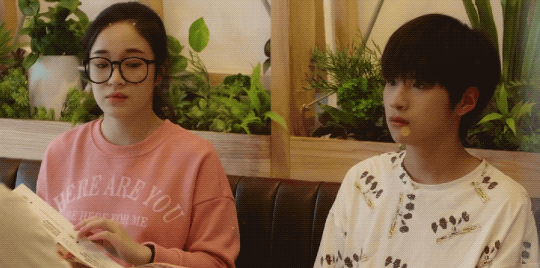
Why must they do this? Why break the fourth wall like this? To get more people interested in the intricacies of BL and to get them to participate in the culture. BL is created by fu-people and BL literacies are their tools and source of joy. BL must draw in more people to keep BL culture going. Commercialized BL we have today is the result of an affective culture formed over the years. It is built on years of labor of authors and their audience. I mean, look at the Unknown. This BL employs the well-developed Loyal Dog gong x Queen shou dynamics. Apart from that which the series took from the novel, it also drew upon other common BL beats to tease the relationship between Dr. Lin and his senior.
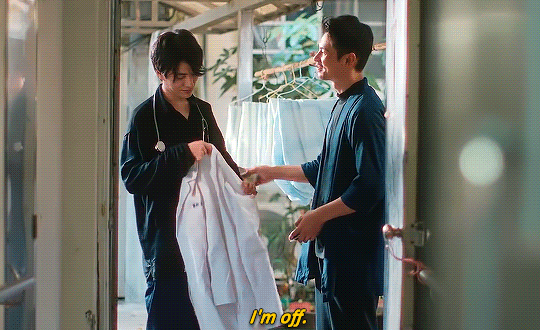
Teaching BL literacies is political. When Mainland Chinese government gets dangai productions to change names and relationships of characters (among other things), it is to prevent live-action audience from discovering BL as a genre with it disruptive potential. It is not only character's names and relationships that are changed. There are entire sub-genres of danmei (such as 高干) that got wiped out by censorship.
When a Taiwanese BL not only retains the character names & relationships and shows relatively explicit intimate scenes but also actively promotes BL literacies, it is an act of resistance. Discussion of gong shou, being genre specialty, manages to do so. Interestingly, they are doing it in an adaptation of a novel by Priest who has a particular reputation with self-censorship. That scene is not part of the source novel.
Heterosexual & gong shou
Association of bottom with the feminine (female or otherwise) has its roots in medicalization (and pathologization) of homosexuality in the west (such as through theories by scientists and doctors like Richard von Krafft-Ebing). This “knowledge” subsequently spread across the globe and was adopted to varying degrees and forms.
Moreover, the terms gong and shou applies to heterosexual pairing too.
BG (boy girl) ships have male gong and female shou
GB (girl boy) ships have female gong and male shou. [If this is interesting unfamiliar territory, check out the series Dong Lan Xue (2023).]
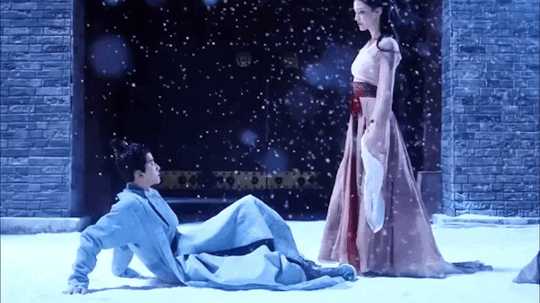
Moreover, if one is willing to look beyond LGBTQIA+ form of queerness (which is born and brought up in America), one can see other queer possibilities. For example, Kothi-Panthi queerness in South Asia which is characterized by explicit presentation of top bottom dynamics. There are very many similar forms of queerness in other parts of Global South.
In many cultures, sexuality doesn’t inform identity but sexual preference does. That’s why is you are to ask a kothi-panthi couple which one of you is the bottom, the kothi would tell you without hesitation: “I am.” Might even asked you in turn, “Couldn’t you tell?” For them, sexual preference (being kothi) rather than sexual orientation takes center stage. This is the inverse of how LGBTQIA+ form of queerness looks at it. While LGBTQIA+ model of queerness focuses on sexual orientation (being pan, ace, gay, etc.) as something that can be freely discussed but sexual preference (top, bottom, versatile, side, etc.) is considered private.
*Just to be clear, “kothi” is a term of self-identification. It means that the person is a bottom. Panthi is not self-identification. That’s how kothi address the men who top them.
While thanks to westernization LGBTQIA+ form of queerness enjoys more visibility, I think it is better to consider it as one type of queerness rather than the only model of queerness. Gong shou dynamics doesn’t fit into LGBTQIA+ form of queerness because it comes from another, much-older nanshoku model of queerness that made its way into Japan from China, hundreds of years ago.
Friction between different models of queerness is common where ever they interact. In 1970s, Japan was witness to public debates between a younger, westernized Japanese queer activist Itō Satoru and other Japanese queer activists such as Fushimi Noriaki and Tōgō Ken who were rooted in indigenous tradition of male-male sexuality.
[Itō Satoru’s] insistence on the necessity of adopting western models of gay identity and coming out have brought him into conflict with other activists such as Fushimi Noriaki and veteran campaigner Tōgō Ken.
Interpretation and Orientalism: Outing Japan's Sexual Minorities to the English-Speaking World by Mark McLelland
Clarification
[Edited. Thank you @wen-kexing-apologist for contributing to the conversation.]
Under the LGBTQ+ model of queerness, it maybe considered inappropriate to have conversation about “top” “bottom”, especially in the office, going as far as to ask that to Qian ge. From that perspective, the BL audience (especially those who are unfamiliar with the terms gong and shou) are fair in their assessment of that scene being out of place or outright offensive.
I think things might have been a bit different if the subtitles retained the terms gong shou instead of “top” “bottom” since they aren’t exactly the same thing. That would have had the desired effect (of introducing BL literacies - gong shou in the context of 强强 (strong gong x strong shou) pairing) without unintended consequence.
What is considered rude under the LGBTQ+ framework is an essential part of fu culture. It is like addressing Wei Qian as just Qian – that could be considered rude in the original language but pretty normal in English. Different cultures, different norms, so to speak. It is only polite to be mindful of the cultural differences and avoid discussing about sexual preference where it is considered inappropriate.
As for the normalization of fu culture (especially discussions of gong shou), in my opinion the didactic scope of Unknown is undermined by the very fact that it is primarily a gǔkē danmei (via adoption (收养)) with tongyangxi vibes (highlighted multiple times by San Pang in the novel) associated with Wei ZhiYuan.
Somehow fu-culture gets judged by those who consume products of that culture. Everyone is happy with fu-cultural products as long as fu-people don't discuss who is gong and who is shou.
Why are fu-culture and BL always judged based on a culturally alien lgbtq+ form of queerness? Why must BL be arm-twisted to fit into norms of lgbtq+ form of queerness just because that is the most mainstream form of queerness?
-
That’s not much a conclusion but this is already so long. I really hope it gives you something to think about.
If you are interested, here's more.
#boys love#danmei#taiwanese bl#bl meta#bl history#bl analysis#unknown the series#unknown the series analysis#unknown the series meta#unknown#priest novels#unknown bl#unknown series#unknown the series spoilers#taiwanese series#taiwanese drama#chinese bl#chinese queer culture#danmei tropes#danmei novels#bl tropes#bl trivia#bl taiwan#unknown bl meta#unknown bl analysis#bl critique#bl novel#bl drama#yuan x qian#zhiyuan x qian
170 notes
·
View notes
Text




My Diew is so cute.
#monster next door#monster next door the series#big thanakorn#park anantadej#god x diew#monsternextdooredit#thai bl#thai drama#bl drama#bl series#my edits.#they're doing all the tropes but in reverse and it's so cute
338 notes
·
View notes
Text
nothing hits quite like "I despised the very air you breathed until I was confronted with your humanity, complete vulnerability & it somehow touched my own, & oh, fuck- there's a permanent you-shaped crack in my heart now & the hands that wanted to throttle you are moving to protect you, all on their own."
#enemies to lovers my beloved#this show is so simple but utterly satisfying so far#i can't gif till much later & my sincerest apologies go out to my fellow giffers b/c that last scene was filmed on an actual potato#dangerous romance#dangerous romance the series#perthchimon#kanghansailom#enemies to lovers#bl tropes
1K notes
·
View notes
Text
GMMTV has a new QL trope and I am not a happy camper
With the last few series I've watched or partly watched on GMMTV, it would seem there is a new trope. I'm not certain it's a new trope, but I searched @absolutebl for trope posts for at least half an hour and didn't find it, so I don't think I'm totally off about this.
I'm calling it emotional punching bag. Instead of seme/uke representing chaser/chased, it represents emotional aggressor/victim.
The general pattern is this:
Character A gets angry at character B over a real or imagined slight.
A claims to be the victim.
A is unaware (or pretends to be) of any contribution A made to this issue.
B apologizes, whether or not B contributed to the problem.
A never apologizes and never acknowledges their part in the problem.
The problem gets papered over (if they get back together) or never gets resolved (if they don't).
I think it started with Only Friends. Boston (B) gets set up by Atom (A) and is made to be the villian. The truth is revealed. Boston apologizes for his other behavior in the series but nobody apologizes to Boston for him having been set up. Never gets resolved.
Then there's Last Twilight. Mork (B) tries to engage in self-care and Day (A) makes it all about Day and breaks up with Mork. The problem gets papered over when, plot hole, Day wanders through a hotel lobby without the cane he got so he could be more independent and which we never see again, and Mork steps in and helps him, and then they get together and Day gets his eyesight back at the same time with no real narrative resolution. Mork gets back together with Day.
And now we have 23.5. Sun (A) outs Ongsa (B) to Ongsa's parents. Ongsa objects. Sun storms off. Ongsa seeks out Sun and apologizes. Sun breaks up with Ongsa. Ongsa again seeks out Sun and apologizes.
At this point (partway through episode 11, segment 2) I paused the series. I have not intention of going back unless I get word from you Tumblerites that Sun acknowledges her role in all the trouble and apologizes to Ongsa. If they get back together without Sun doing the emotional and reparation work I want no part of it.
And I'm worried. Do I need to wait and binge the rest of Wandee Goodday, which I, as of two episodes, absolutely adore? And this is a boxing series. Is Wandee going to become a literal punching bag?
Do I need to never watch another GMMTV QL series week by week again? Do I have to wait for an all-clear and then binge?
GMMTV, please get your ending act together, I beg of you.
#yaoi#yuri#thai ql#taig gl#thai bl#thai bli meta#thai gl meta#thai ql meta#23.5 meta#ofts meta#last twilight meta#pandasmagorica#bl tropes#ql tropes#gl tropes#wandee goodday meta#gmmtv
184 notes
·
View notes